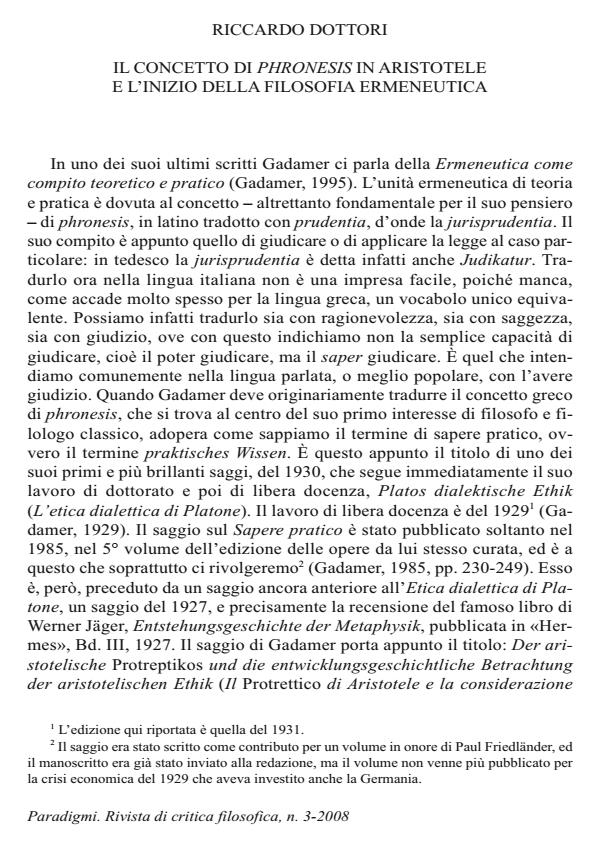Il concetto di phronesis in Aristotele e l'inizio della filosofia ermeneutica
Journal title PARADIGMI
Author/s Riccardo Dottori
Publishing Year 2009 Issue 2008/3
Language Italian Pages 14 P. 53-66 File size 76 KB
DOI
DOI is like a bar code for intellectual property: to have more infomation
click here
Below, you can see the article first page
If you want to buy this article in PDF format, you can do it, following the instructions to buy download credits

FrancoAngeli is member of Publishers International Linking Association, Inc (PILA), a not-for-profit association which run the CrossRef service enabling links to and from online scholarly content.
The Aristotelian concept of phronesis and the beginning of hermeneutical philosophy - This essay outlines Gadamer’s interpretation of the different meanings which the concept of phronesis assumes in Aristotle’s works, Protrepticus, Ethica Eudemia and Ethica Nicomachea. Gadamer shows that phronesis could mean both theoretical and practical knowledge in everyday life and ordinary language, but only in Aristotle’s Ethica Nicomachea it acquires a specific meaning, different from the proper knowledge of techne and the universal knowledge, typical of sophia. Technical knowledge can be objectively learnt and taught, while phronesis cannot be acquired or borrowed from others, because it concerns our own existence. Phronesis is also different from theoretical knowledge, because it is a concrete way of behaving in a single, unrepeatable situation, where virtue becomes real against the background of a universal norm. In Gadamer’s perspective, phronesis is the key to understand hermeneutics, because of its fundamental character of historicity. Hermeneutics is a practice, more than a technique, because it is not a mere application of language rules, but the understanding of what the other wants to tell us in communicative encounter. Christoph Jamme, The double message: the real Liebenkönnen and the Sterbenmüssen.
Riccardo Dottori, Il concetto di phronesis in Aristotele e l'inizio della filosofia ermeneutica in "PARADIGMI" 3/2008, pp 53-66, DOI: